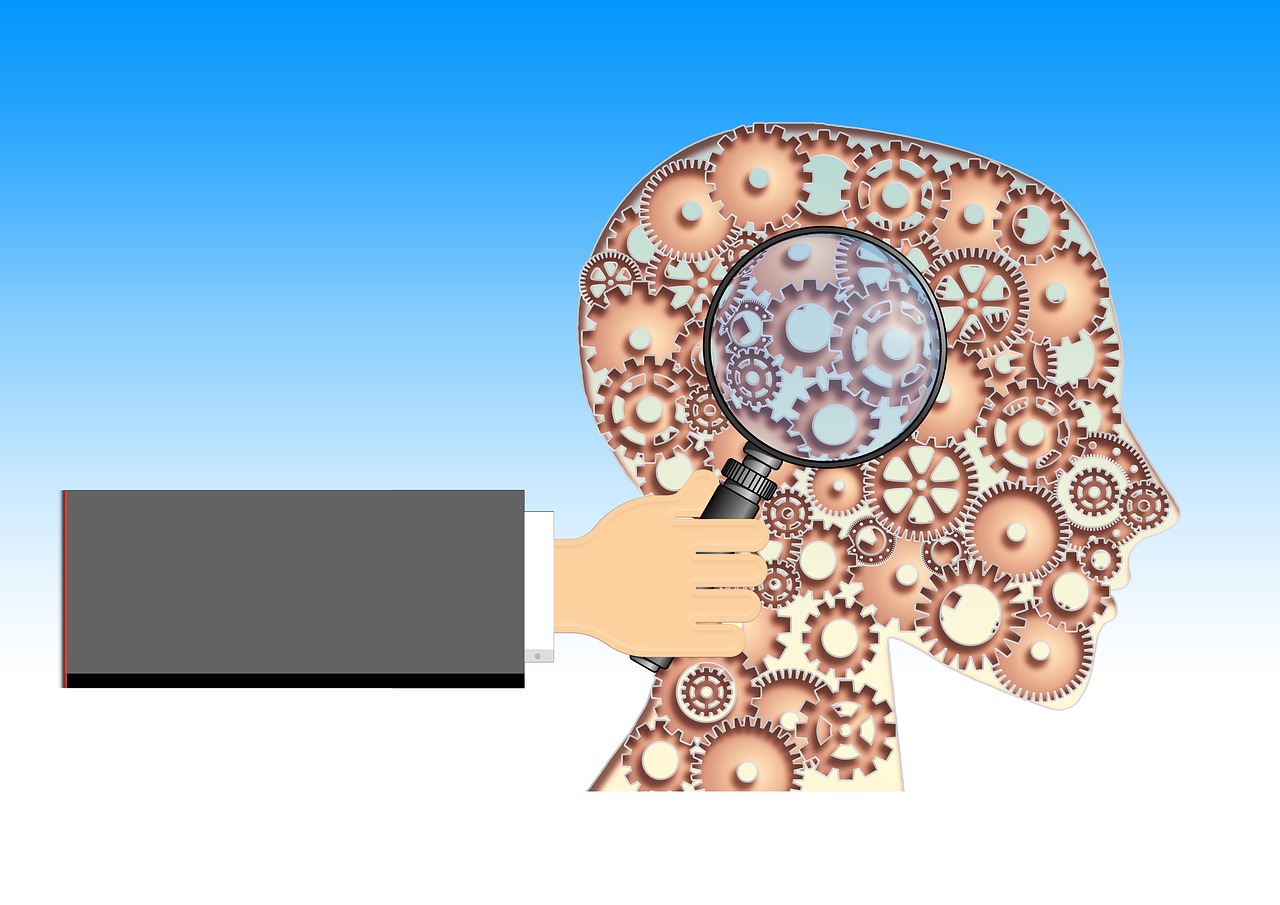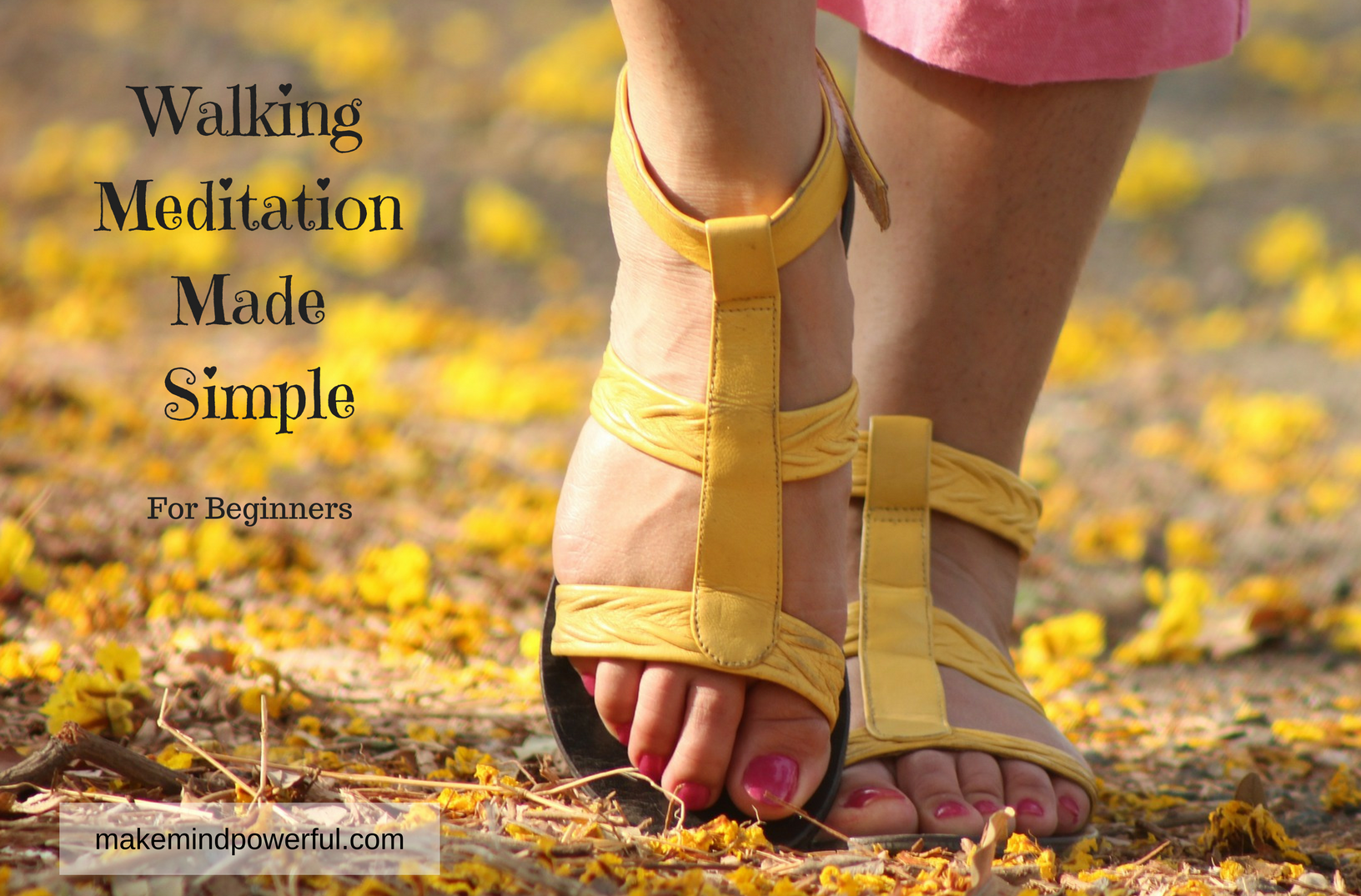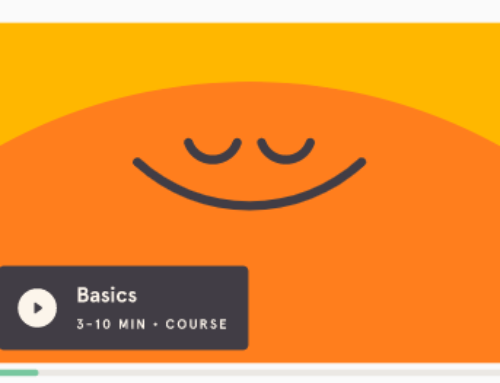At the risk of being unpopularly labelled as stereotyping, I will still say this, “Meditation is difficult for certain personalities“. I prefer to say personalities instead of people. Maybe that sounds more politically correct but the fact is, some of us find it so hard to meditate.
If you have learned meditation online or have picked up my copy of Mindfulness Meditation For Beginner, most new learner of meditation regardless of methods will expect to feel relaxed and peaceful after meditating.
But the fact is, that’s not really the case for every single one of us.
Even if you are meditating under an experienced guru and received the best instructions, you may still find yourself getting nowhere after a few weeks, although that’s very rare. But most people who learned meditation online or through books without proper guidance have high chances of getting stuck and got discouraged from continuing the practice.
From my observation in forums and also past experience (you guessed it, I belonged to that personality that got stuck), beginners who got stuck in meditation progress share these personalities : over-analytical, high-expectation, and impatience.
Don’t Analyse When Meditating
Instead of being aware of your breath or any sensations that you focus on, do you find yourself thinking “Am I doing this right?“, “But the books/guide said this or that should happen” or “Maybe I could just modify the technique a little bit“.
What happens here is that you are spending that whole 15 or 30 minutes lost in your thoughts. You are thinking and analysing instead of meditating.
The common questions asked by beginners is “What do you think when you meditate?” or “How do I stop my thoughts when I meditate?”
I think these questions are caused by the wrong understanding of mindfulness meditation and have beginners pondering about it instead of being in their mindful state during the practice.
Let me just say that mindfulness meditation is not the absence of thoughts (because you will always have thought as long as you are alive). Yet you do not really “think” the normal way you do when you are meditating.
What you are actually doing in a mindfulness session is to be aware of your thoughts, feelings and sensations without attempting to label them and getting attached to them.
Example, when you sense pain during your meditation, you mentally note it as “feeling“. You don’t get carried by your thoughts and think “I feel so uncomfortable“, or “I hate it“.
Expectation Hinders Meditation
“Wait.”
“So, I wanted to get into meditation to reduce stress, get better sleep, to have more focus or to get all the benefits here, and now you’re telling me that having these expectations means I can’t get it? ”
Chill.
What I’m talking about is you don’t start your meditation session by thinking “I want to clear my stress in 10 minutes” or “I want to be super blisfully relaxed in this session“.
If you have such mindset going into meditation, you will be left disappointed. That I could be sure.
Here’s why.
When you carry expectation-laden mindset to meditation, you find yourself tensed with expectations. You would be subconsciously hoping and wishing that you achieve what you wanted. Your mind is unable to do what it’s supposed to do, i.e. mindfulness.
In fact, having these expectations hidden in your subconscious is a greater block than getting caught up in analytical thoughts. That’s because the latter is obvious and the former is lurking behind your mind. It’s hard to be detected by beginners.
And don’t you find that the best things happened when you least expected them?
Impatience Brings You Nowhere
“I’m feeling tired after 30 minutes of sitting meditation, should I do an extra 15 to get relax?”
No. An extra 15 won’t reverse your mental fatigue. Go get some rest.
“I feel good after doing 15 minutes today, should I try 60 minutes tomorrow?”
No. You probably would be so lost in stray thoughts and mental fatigue by the time you hit 20.
“I’ve meditated 15 minutes daily for the past couple of weeks, yet I don’t feel relaxed or calm. Am I doing it wrong?”
No.
Well, if you train under an experienced guru, your guru would know best. But if you are practicing from books or online resources, chances are you don’t give it enough time.
Meditation is not like an academic course when you do step 1 to 10 for 30 days and you would get your cert. The better way to think of meditation is taking care of your mental hygiene.
How long does it take to clean and polish a diamond that has been accumulating dirt and dusts ever since?
As long as it takes.
The fact is, any progress in meditation is subtle and often unnoticed by yourself. But when you see the results in your work, study or the general emotional wellness in your life, you know you are doing well.
Be patience, meditate and let mindfulness works its magic.
If You Still Find Meditation Difficult…
Start with walking meditation instead of sitting. It is my preferred way for a beginner. You can check out my post here.
An over analytical mind coupled with high expectation and impatience, tells me that you have a very high level of brain energy and activity. And has been so for years or decades, I believe.
Realistically, it’s easier to practice walking meditation rather than trying sitting meditation from the start. That’s what I’ve done in the past.
If you are really keen into getting started with walking meditation, you can get a FREE copy of Walking Meditation Made Simple when you subscribe to my mailing list.
Have you tried to meditate? Do you experience the lack of progress in your meditation? Share your thoughts with me in the comment section.
You may also enjoy these :
31 Proven Benefits Of Meditation
Mindful Eating For Weight Loss
How To Stop Being Negative









Nice post and very true. I also think that stressing about meditating give you more stress LOL.
Hi Helen,
Meditation should be approached with an open and relaxed mindset.
Cheers,
Kenny
A very enjoyable read! I will try walking meditation tomorrow. I have read “clear your mind of all thoughts” in several yoga/meditation books and that frustrates me because like you said, I would have to be dead. But I have also read “distance yourself from your thoughts. If something comes to mind, acknowledge it, let it run its course, and then distance yourself from it.” Do you agree with that second statement? It seems so difficult. What happens to you when a thought comes to mind while meditating?
HI Tessa,
I’m not sure about clearing your mind of all thoughts but the second one is totally achievable. It’s mindfulness.
It is difficult because your mind is so accustomed to react to every single thought. That’s where mindfulness meditation comes into the picture.
When you are meditating and let’s say you have angry thoughts surfacing in your mind, just mentally note it as “feeling”. You can take the chance to be aware of how anger feels. Does it tear your mind apart, does it suffocate your mind. Just observe and feel it without reacting to it. Keep repeating “feeling” in your mind. Because that’s really what it is. You don’t have to be the owner of the anger.
Hope it helps.
Cheers,
Kenny
Wow Kenny! You just described my attempts to meditate. I literally do every one of these things, especially the expectations. I just want it to work, and it never does. It seems that I treat meditation as a job, rather than what it’s supposed to be. I also have an analytical mind, which is very bothersome. You really nailed my problems with meditation, so I’ll try walking. I would say I want it to work, but that’s expectation :).
Hi Makki,
Perhaps you would try removing all expectation and you may find wonder in meditation. It’s just like the way you crafted your beautiful blog post.
Cheers,
Kenny
I’m probably one of those people or personality. I think too much even in my sleep. It is very difficult for me to relax. Every time I have tried meditating, I give mid way because I get frustrated.
I get really aware of how my mind is spinning and it makes me even more agitated. I was once told with my state of mind, I’ll be hard to hypnotize. Th st I’m ok with, hypnotism creeps me out.
I’ll try the steps you listed and hopefully they’ll work.
Hi Denise,
I’m one of those who over-think a lot when I started meditating. Like you, I find it frustrating. But I was lucky to learn from a guru.
Once I got past the initial stage, it is easy to note when the mind begins to stray away.
And I’ll let you know this, a highly energetic mind, should it be able to develop focus power from meditation, is a powerful mind.
Don’t give up.
Cheers,
Kenny
Hi Kenny, I never knew that certain people would have more challenges with meditation than others. I agree that overthinking can make meditation difficult. But, I suppose when that crops up, we should just watch our thoughts and not get attached to them? I do get impatient as well, especially when my mind is hankering on doing something that involves it (thinking). Thanks for sharing this insightful piece!
Hi Lily,
Our level of mind energy is different. From one individual to others and also as we ages. For some people, they have this bouncy kind of energy. It probably take less than 10 seconds for the mind to wander off. And for them to go straight into sitting meditation is like slamming a brake on a full speed vehicle.
As for the overthinking, you are right that we bring our thought back and not getting attached to it. In fact, I’m stressing that in my meditation guide too. The only problem is that people who have a very noisy mind will find most of their sitting meditation lost in stray thoughts.
Most of the time they wouldn’t even realise that their mind wanders. Training under a guru enable this situation to be addressed directly, but for those who are picking up on their own, they may be lost in the first few session.
Cheers,
Kenny
Hello Kenny,
I definitely will agree with this post here because I experiences all of it, the over analysing, the impatience and so forth.
When I was reading through: Expectation hinders meditation I remember I read a book that said, just meditate to meditate and nothing else, don’t meditate to get anywhere, so that always helped me to relax and just do it to do it.
and i thought that free guide that I got from your website was really awesome. I helped me understand that meditation is not just sitting down and closing your eyes you can also do it while walking or standing somewhere.
So I really appreciate this post , thank you
Ben
Hi Ben,
I’m glad that you found my meditation guide useful. Thanks for downloading it. The practice of mindfulness can be carried to our daily activities. In fact, that’s the purpose of meditation. Else, spending 30 minutes cleaning your mind and the rest of the day cluttering it up would be a waste of effort. Wouldn’t you think so?
It’s great that you managed to go through the challenges of meditation that many would have given up.
CHeers
Kenny
“Impatience brings you nowhere” – how true is this Kenny?!
I remember when I first started meditating and It was such a patience test that I almost gave up doing it.
It really doesn’t help in the slightest.
My patience has grown tremendously since I’ve kept with it.
Overall, a very helpful post.
Cheers =)
Hi Lawrence,
I’m glad you get past the initial stage. The starting is the most difficult.
Cheers,
Kenny
I think that meditation is the last piece of the jigsaw for me, I am a natural sportsman that has been enjoying the physical benefits of yoga for a few years now, but have resisted the meditation aspect, maybe I should give it a go?
Hi Stan,
You definitely should give it ago, if anything meditation does complement yoga well.
Cheers,
Kenny
Kenny, what an informative article! I’ve tried meditation before on my own and yes, I probably am over-analytical and very impatient. Reading your article made me realize that I need to practice the walking meditation instead of the sitting meditation.
I subscribed to your mailing list and are going to use your free copy of WALKING MEDITATION MADE SIMPLE to explore this method.
Thank you,
Marisa
Hi Marisa,
Sometimes our thoughts can get the better of us in meditation.
Do stay tune to my updates as I’m getting a few meditation experts to give their valuable thoughts.
Cheers,
Kenny
Hi Kenny,
I certainly do over analyse things a lot. And don’t start with me on the impatience part. Lol! I think I’m going to be one of those who find meditation difficult. It’s hard to shut off my mind from all the distractions going on around and within me. I find meditation while walking intriguing. I will subscribe and give it a try. Thanks!
Yvonne
Hi Yvonne,
Do let me know if walking meditation works for you. I’m not saying it is a one fits all solution as starting is always the most difficult. Don’t try to shut off your mind as in clearing your mind of any thoughts. It won’t work. Just practice mindfulness and that will help.
Cheers,
Kenny
I agree. I would think that a person who is uptight and nervous would have a lot harder time getting into meditation. Which is actually a clue as to why they have to meditate to begin with.
Hi Brent,
Thanks for the read and meditation does indeed benefits those who are nervous.
Cheers,
Kenny
Because our society emphasizes so much “value” on being busy all the time, multitasking (the biggest killer of actual productivity and focus) and the quick fix mentality, it’s no wonder that a lot of struggle with meditation. Like you said, it’s us overanalyzing, having high expectations, and impatience that keeps us from letting go and being able to practice it.
Meditation is a skill which we can all master I believe. But it requires time, patience, and dedication.
Hi Vanessa,
You’re absolutely right. Meditation can be mastered with time and patience. In fact it is in the madness of the busy life that we need meditation the most.
Cheers,
Kenny
Hi Kenny, I fully agree with what you wrote.
The need for instant gratification, added with wrong expectations, are the major obstacles for a successful meditation, even for personalities which normally react well to it. I know that meditation works for me because some things that in the past would have deeply irritated me have lost their power, however it took me some time to realize that. At the beginning, after a session I would automatically think: “So, what happens now?”.
As you can imagine, that kind of attitude brings you nowhere…
Hi Sergio,
Thanks for your sharing your experience with meditation here. Getting trapped in negative emotions arising from the past drastically drain us out of energy. I’m glad you find that meditation helps.
Cheers,
Kenny